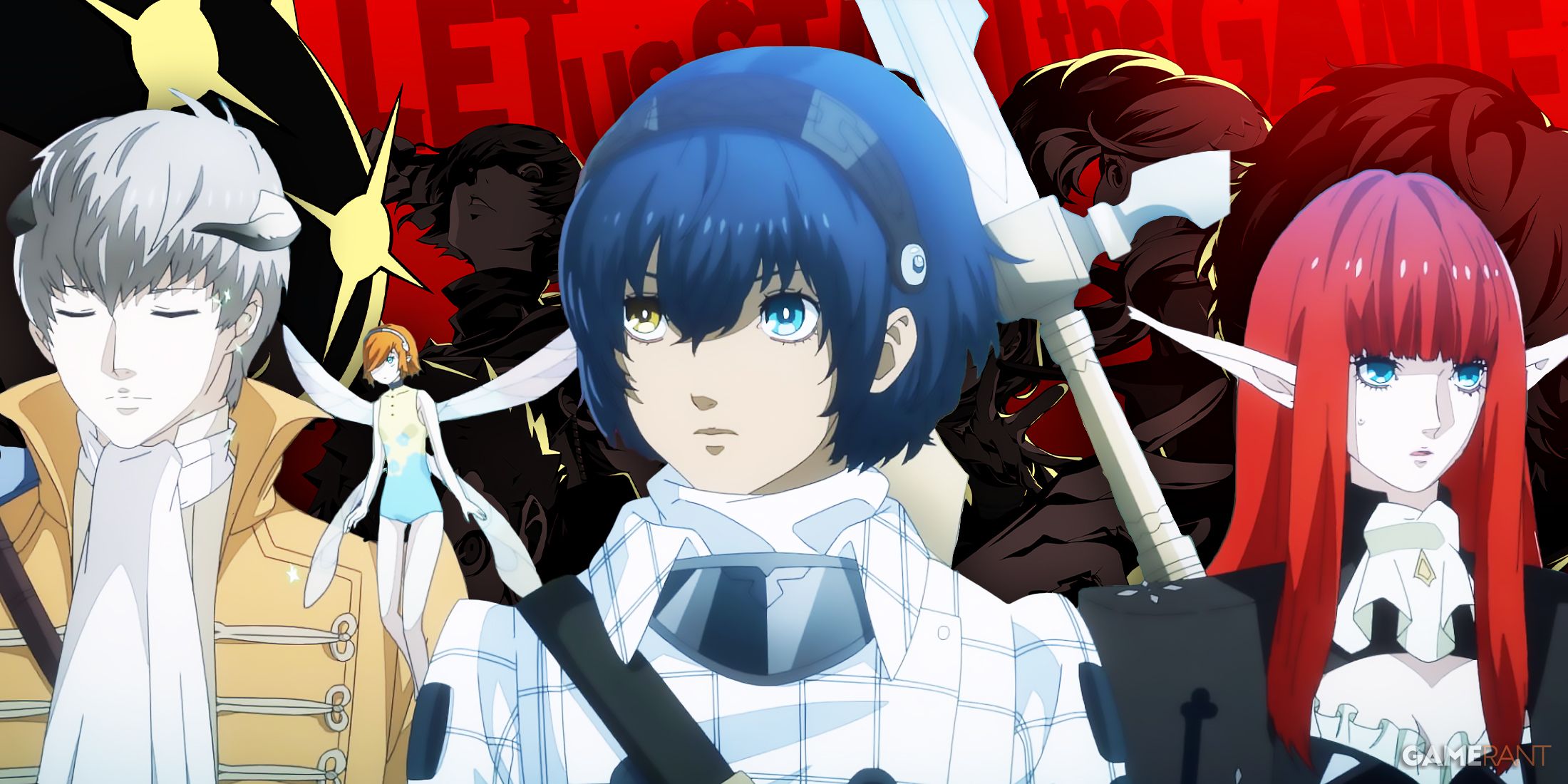Major spoilers for Metaphor: ReFantazio ahead.
In true RPG fashion, Metaphor: ReFantazio‘s protagonist is inhabited in many ways by the player. Though between dialogue choices, daily activities, and the myriad combat options available to tailor the title’s experience, there’s much to be said about how personable the protagonist manages to be in his own right. A lot of that is helped by giving him a proper voice, allowing his dialogue to feel better integrated into both Metaphor‘s down-to-earth and battle-ready situations; working alongside this is the decision to have Metaphor‘s canon name for the protagonist be Will, which serves as a clever choice that ties well into the story’s multi-faceted twists and turns.
Given Metaphor: ReFantazio‘s political premise, the use of the name Will is, on its surface level, a nod to the protagonist channeling the will of the people through his efforts for the throne. This will is challenged time and time again, however; the tribes of the United Kingdom of Euchronia are, despite its name, far from united, and live mostly in disharmony and outright hostility beside each other. As an elda, the protagonist is at first detested for his tribal status, though with his desire to help those in need and his work alongside members of the other seven tribes, his reception comes to change. The wishes of the people are made tangible through the late king’s royal magic, with their desires in constant flux based on the fears and anxieties they face.

Related
Metaphor: ReFantazio’s Followers Are a Quality of Life Masterclass for Persona 6
Metaphor: ReFantazio’s Followers have some quality-of-life features that Persona 6 might want to take note of for its Social Links and Confidants.
The Will to Help Those in Need
The will to move forward despite adversity is a central tenet of Metaphor: ReFantazio‘s protagonist, who begins his adventure at first seeking to help his best friend, the prince, be lifted from his curse and regain the throne. These efforts take him and his allies on a whirlwind of battles and revelations, and upon finally reversing the malignant magic that had taken hold of him, the prince’s untimely death seems to make all of their work in vain.
With the prince well and truly dead in the eldan sanctum, the protagonist and his allies nearly succumb to the idea that their efforts have been for naught until it is revealed that the protagonist himself is a will personified; the soul of the prince’s desires for change was made human in his form, able to travel the world in his stead.
A Will Personified
The revelation here that the protagonist has been, at least in part, the prince all along, is clever on multiple levels. The ability to see Euchronia’s misfortunes and actively work toward change while developing his royal virtues comprises much of Metaphor‘s gameplay, though it also helps create a contrast between the prince and Metaphor‘s central villain, Louis.
Louis is consistently seen as both powerful and apt towards his ideals, adopting a ‘survival of the fittest’ stance that, in its twisted way, shows the strength of his own will. Louis wishes for a world without injustice, where the people are left to succumb to their own fears and anxieties, creating a literal ‘battle of wills’ that the protagonist must challenge through his hope that, by the tribes working together, the people’s burdens can be eased.
Fulfilling The Late King’s Wishes
This exploration into the strength of a person’s will also ties into the character of More, who inhabits Metaphor‘s Akademia and plays a central figure in the protagonist’s adventures. Beyond his role as a narrator and overseer of Metaphor‘s Archetypes, the reveal of More as a spirit of the late king, taking the form of his younger self, makes for one of the title’s most emotional moments.
Saving the prince from death by Louis’ hand, More implores him to seek refuge in the fantasy of his book’s utopia, believing that Euchronia is long lost and will never change for the better. The strength of the protagonist’s will urges him to return to Euchronia’s reality for a final battle with Louis, which More laments at first, believing he will lose his son again.
As the prince remains steadfast in his desires, however,
Metaphor
‘s More
comes to understand just how strong his will truly is, something that he was unable to hold onto after losing his wife and believing his son was dead, resulting in the Kingdom’s abject state at the beginning of the game.
Still, the initiation of the royal election magic through his death and his role as a guiding figure in spirit shows that the late king’s own will was not entirely lost, helping to put into motion the events that take place during Metaphor‘s Tournament of the Throne. Though the crown wasn’t technically inherited by the prince through a will, the late king’s efforts in helping lead his son to take his place shows another way that the word, and name, was a clever decision on Studio Zero’s part to make canon.













Leave a Reply